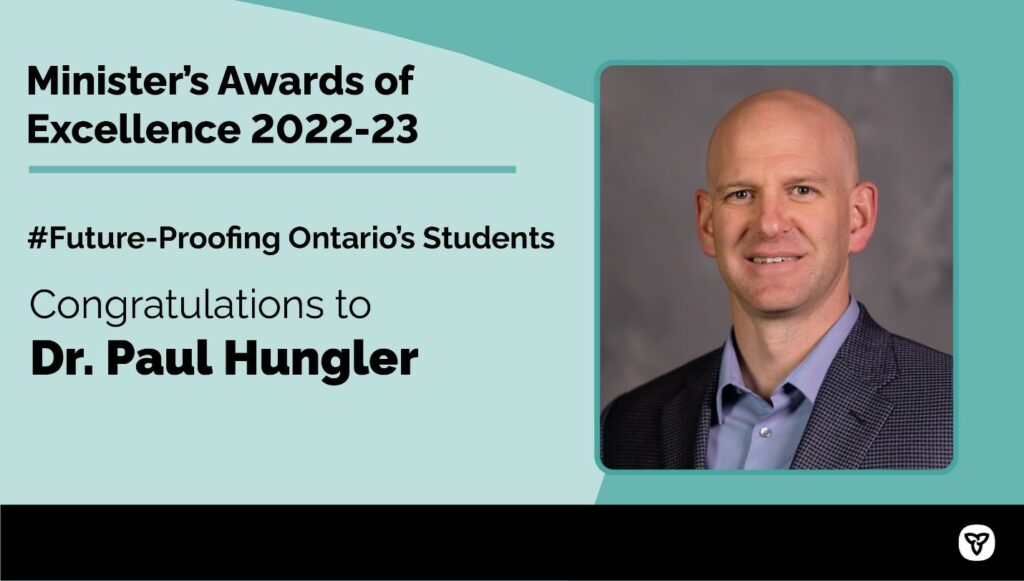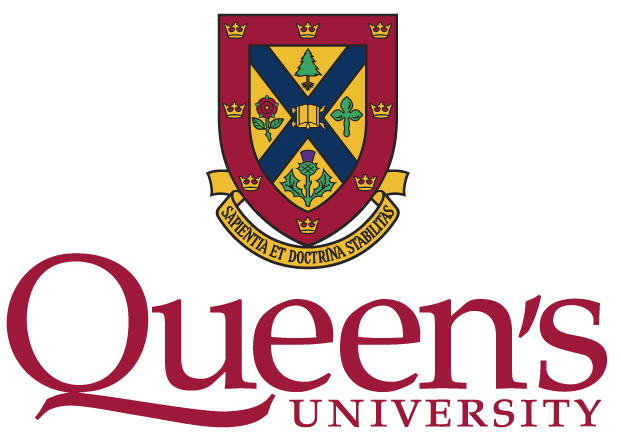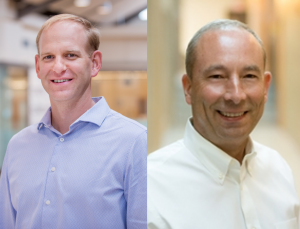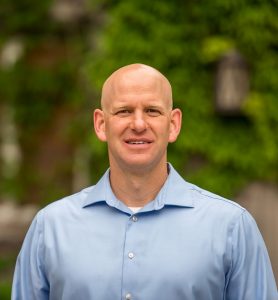
Congratulations to Dr. Paul Hungler for winning a Minister’s Award of Excellence in the category of Future-Proofing Ontario’s Students, which recognizes Faculty and staff across Ontario who have led the way in adapting programming that supports new ways of learning.
Dr. Hungler is recognized for the profound impact he has had in adapting and innovating programming that creates a conducive and creative environment for student learning at Queen’s. In 2022, he won the Principal’s Educational Technology Award and the Smith Engineering Innovation in Teaching Award. Paul has taught a developed a variety of courses in Smith Engineering and led the development of an enhanced Queen’s Master of Engineering Program.
Before joining Queen’s, Paul was one of the leads in the Canadian Armed Forces for Learning Technologies and the application of Virtual and Augmented Reality (VR/AR) for training. He is applying this expertise, bringing VR/AR simulation and engineering professional practice research studies into the classroom in the hope that this can revolutionize the way future generations of engineers are educated. Paul’s teaching philosophy is focused on providing experiential learning opportunities which can enhance understanding and engineering competencies. He strives to include active learning activities, engaging design projects for complex engineering problems and offers extracurricular opportunities for students to develop engineering design and professional practice skills.
Paul noticed that his students had a gap in knowledge when it came to the fundamentals of coding and electrical systems needed to succeed in an ever-evolving industry. In response, he designed the first course in the program’s new energy and conversion design spine which teaches key aspects about electrical circuits, electronics, and analytical chemistry instrument design. By introducing concepts in a one-hour lecture then allowing students to work together in three-hour active learning sessions, the knowledge gap is closing. Paul maintained the experiential learning aspect of the course through the pandemic and a shift to online learning. Exemplifying his innovative teaching style, he provides a capstone project where students use virtual reality to work collaboratively in a chemical processing plant during a malfunction.


